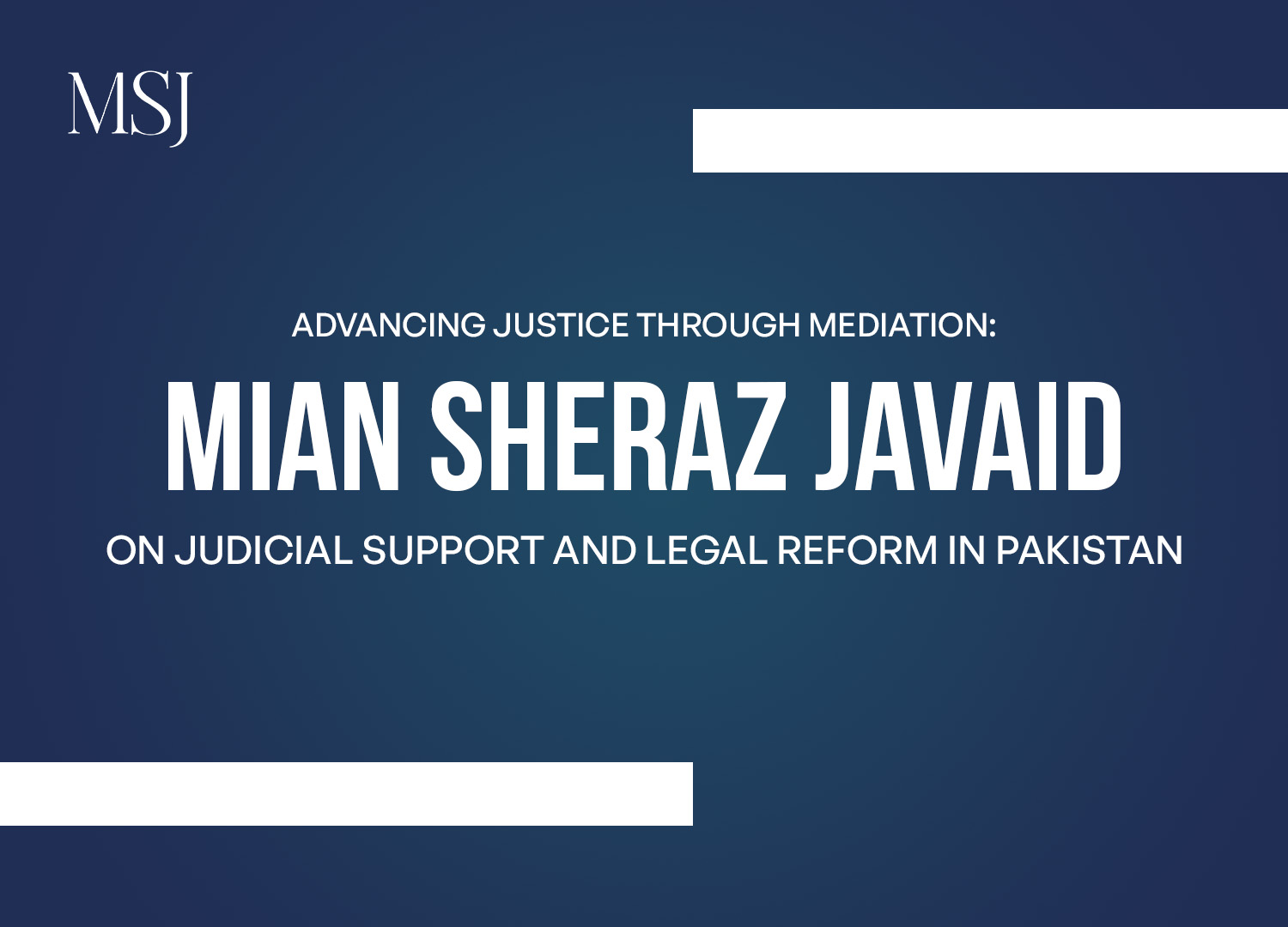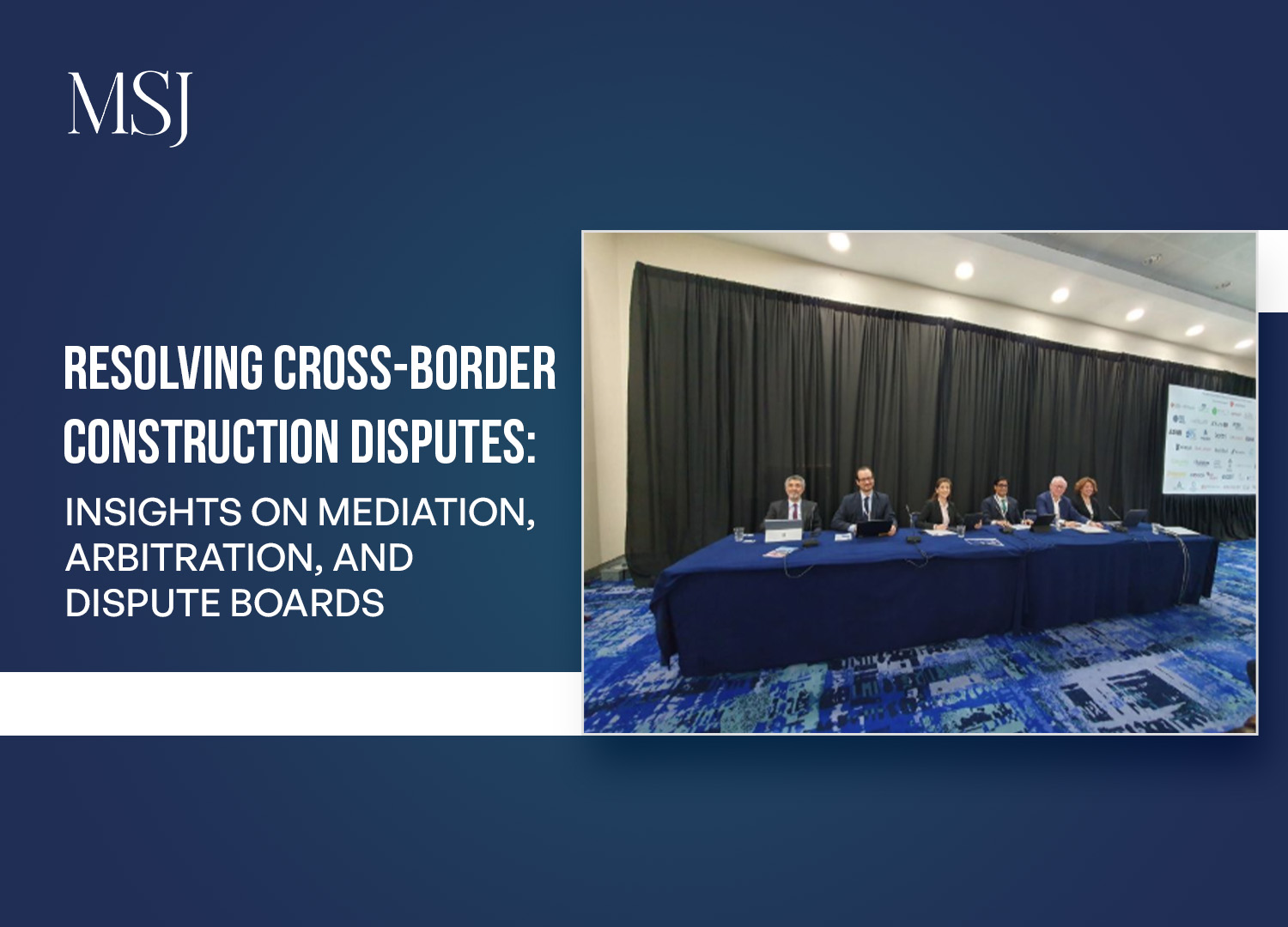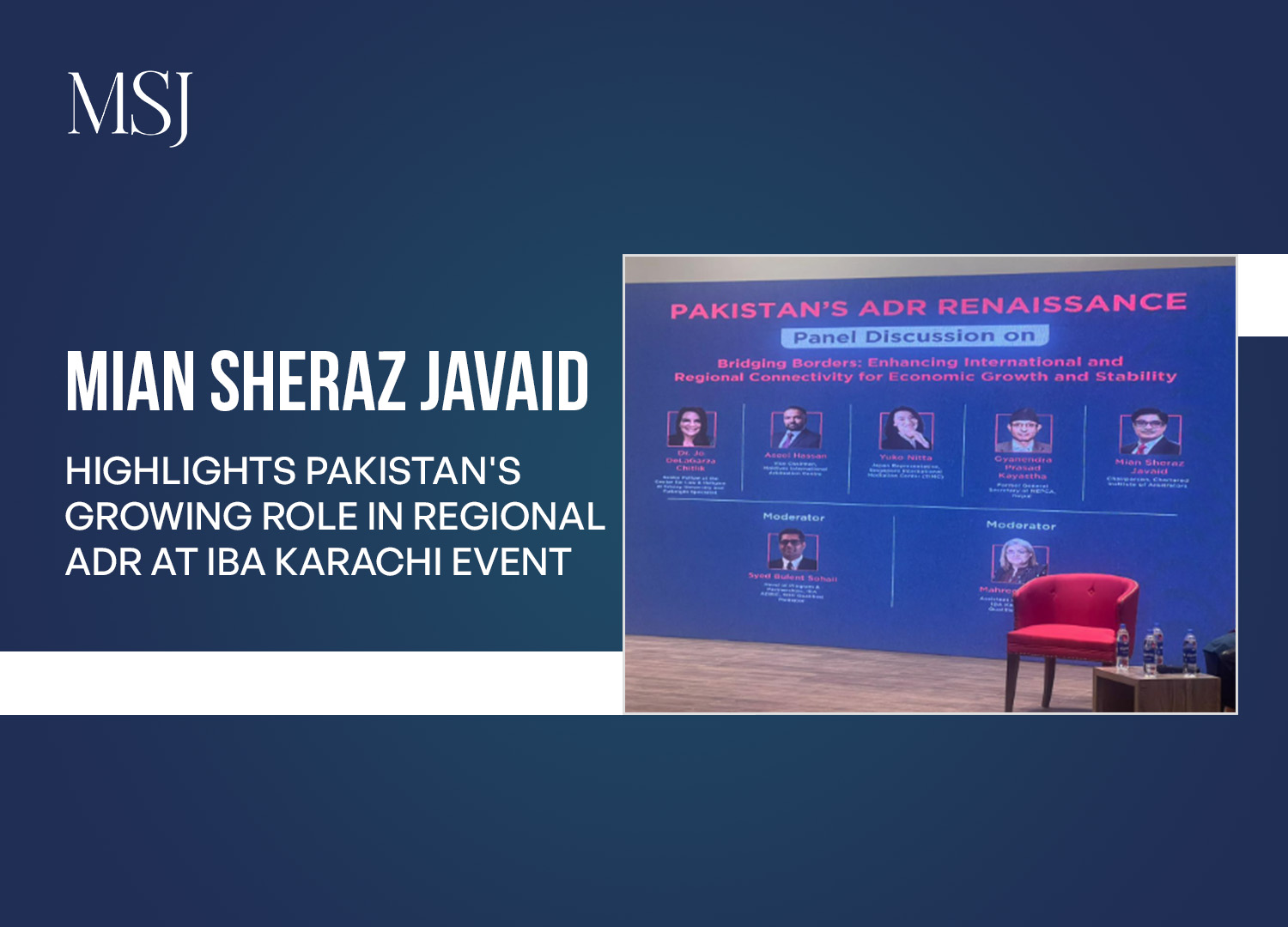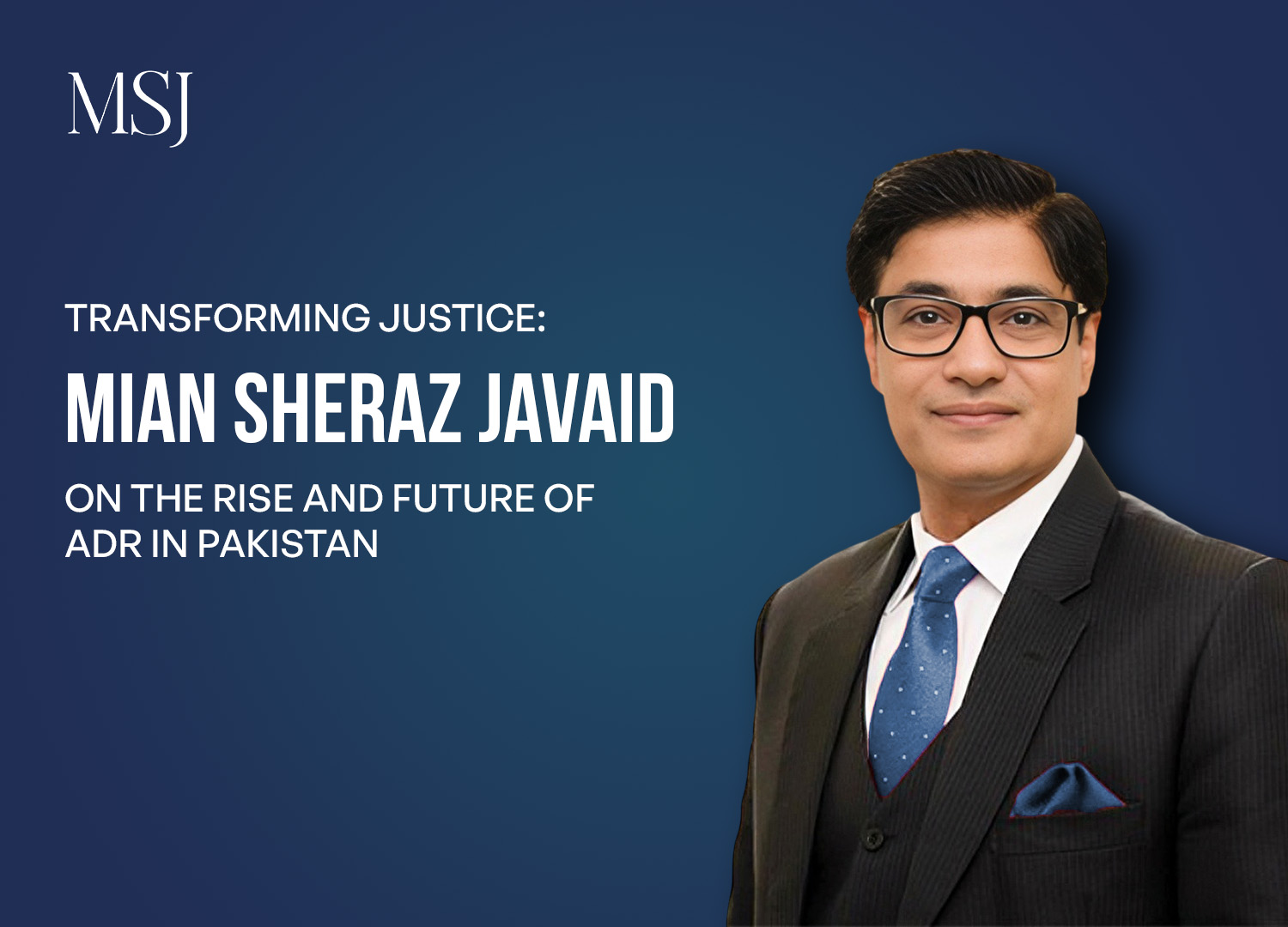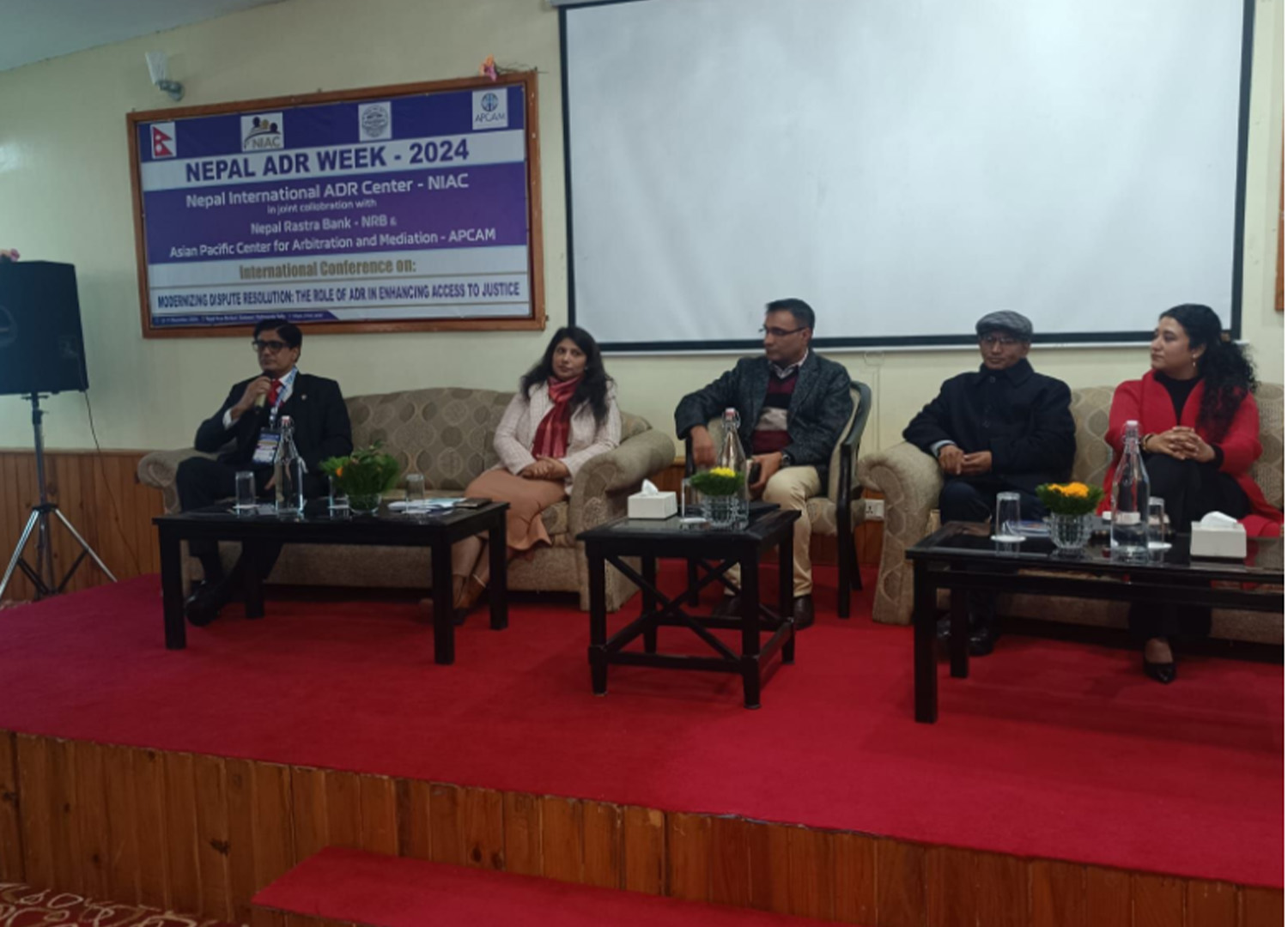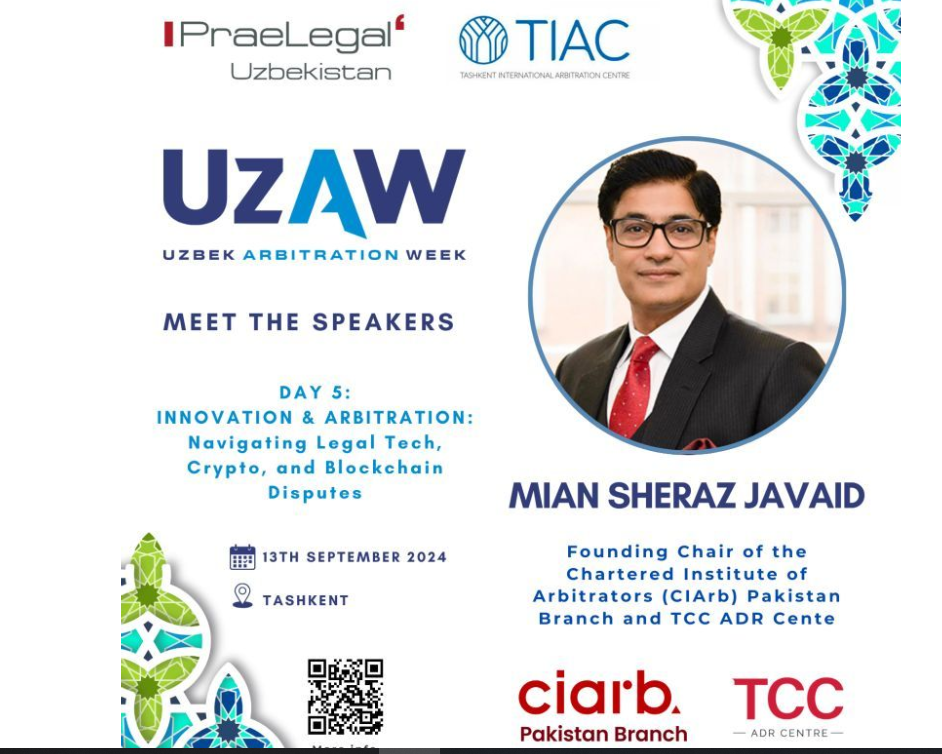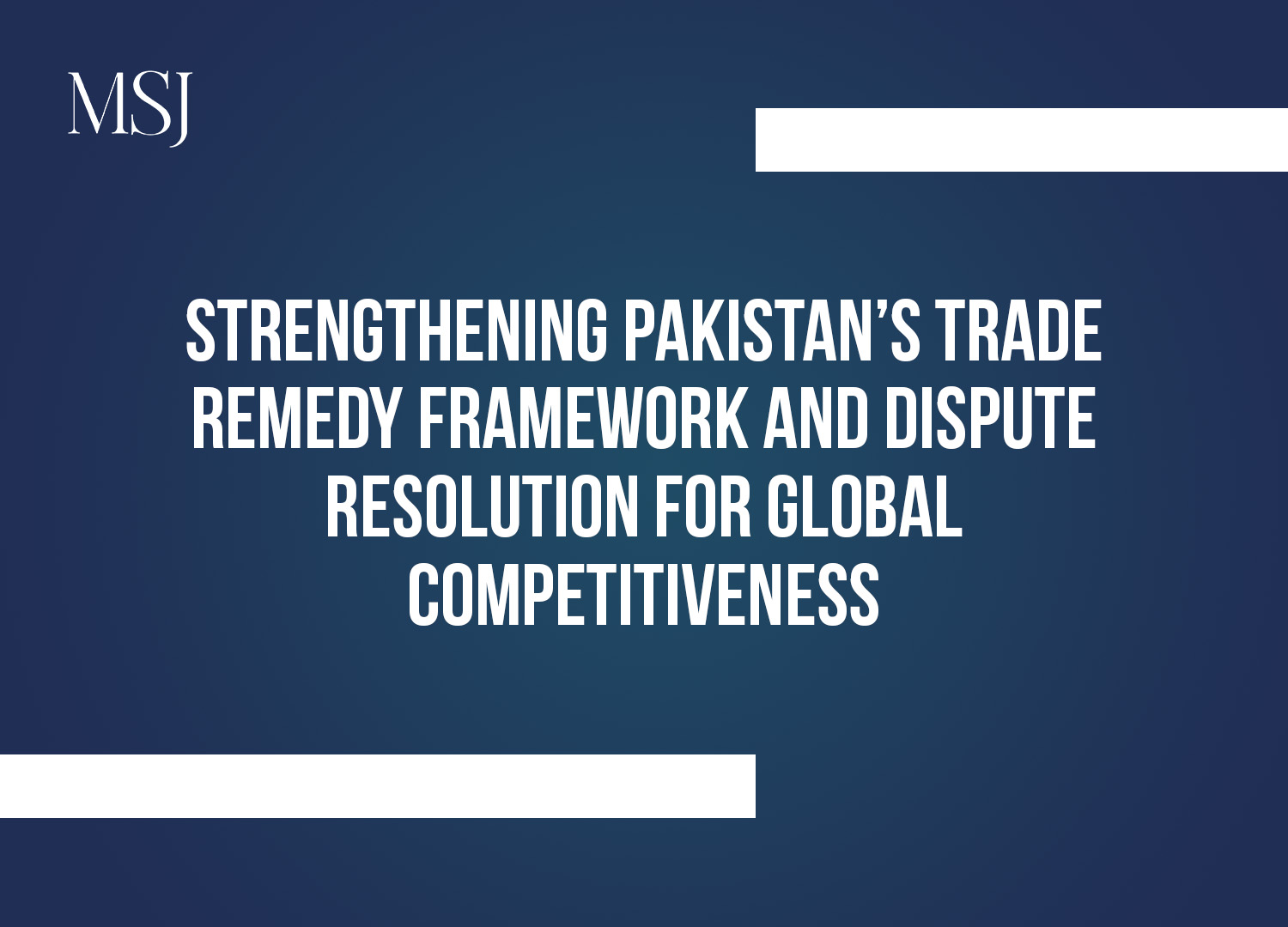Mian Sheraz Javaid’s Role as Moderator in the "Construction 4.0: The Future of Arbitration" Session
On the 1st of October 2024, Mian Sheraz Javaid was part of the Istanbul Arbitration Week’24 and moderated a panel, ‘Construction 4.0: The Future of Arbitration’,alongside Christopher Campbell-Holt, Registrar and Chief Executive of AIFC (Astana International Financial Centre); Gabriel Armanet, FCiarb, MRICS, Senior Director at FTI Consulting (Paris); Asel El Housan, Founder and Director of AEH CONSULTANCY LIMITED L.L.C.; Tarek Alsohaibani, Partner at Sohaibani & Partners Law Firm; and Ayşe Feride Armangil Gökalp, Deputy CEO of TAV Construction.
THE SESSION– CONSTRUCTION 4.0: THE FUTURE OF ARBITRATION
He opened the floor to the three panellists that were full of experience ranging from construction management to arbitration as well as conflict resolution in their varied regions. Asel El Housan, civil engineer and arbitration expert; Gabriel Armanet, Quantum Expert in construction; Feride Gokalp, experienced project manager in construction; Christopher Campbell, Registrar and Chief Executive of the AIFC Court and IAC; and Tarek Alsohabani, partner specialising in construction arbitration.
Sheraz's role as moderator was not limited to merely introducing questions. He allowed the flow of the conversation and made sure each panellist got a chance to speak while maintaining a steady pace throughout the discussion. As the session progressed, Sheraz was adept at steering the conversation back to key topics, especially when the panellists delved into complex or tangential areas. His technical knowledge allowed him to clarify and elaborate on intricate points, making the discussion more accessible to the audience.
Throughout the session, Sheraz asked several thoughtful questions, thereby keeping the discussion structured and meaningful. Most of his questions tended to be around what new technologies, such as Construction 4.0 would mean in terms of practices in arbitration, and what dispute resolution might be in the construction sector's future. He opened the floor on crucial issues including the changing role of experts in arbitration within construction, the integration of digitalisation and AI, and the impact of mega-projects in a country like Saudi Arabia on arbitration demand.
The most memorable instance of Sheraz as a moderator was when he drew from various impressions to the panellists to elaborate on their views related to Construction 4.0. For instance, during the discussion with Gabriel Armanet on the role of dispute boards in construction projects, Sheraz asked him to further expand on how this might potentially alter construction arbitration in the future. This led to a deeper exploration of the role of dispute boards (DB/DAAB) in facilitating early interventions and proactive resolution of disputes. This line of questioning reflected Sheraz's great grasp of the subject matter and his ability to steer the conversation in a direction that was both relevant and forward-thinking.
Sheraz also successfully steered the conversation on more challenging topics, such as the integration of AI in arbitration and the legal challenges presented by digitalisation in construction. When Christopher Campbell raised the concerns of the complexity in integrating the advanced technologies within the traditional frameworks of arbitration, Sheraz encouraged the other panellists to respond in practical terms on how arbitration processes could change to accept these changes. His ability to keep the flow of conversation on while addressing such complex legal and technological challenges testified to his vast experience in construction arbitration and his effective moderating skills.
As the session continued, Sheraz made sure each panellist had the opportunity to share their specific concerns regarding their expertise. For instance, when Asel El Housan pointed out that future dispute resolution would be influenced by FIDIC contracts, Sheraz asked her to elaborate more on how the contracts could develop to better cater to the requirements of contractors and owners in the future. He then asked questions about the future of construction arbitration itself, encouraging panellists to consider the impact of global megaprojects like Saudi Arabia's NEOM project and how these might influence the demand for arbitration.
REFLECTIONS
In the final rounds of the session, Sheraz asked panellists to reflect on broader questions about the future of arbitration. He urged Feride Gokalp to describe ways the construction sector could work to prevent disputes that necessitate arbitration, an area that drew the panel to proactive measures taken before disputes reach arbitration. In so doing, Sheraz steered the entire discussion to core themes that are prevention of disputes and development of arbitration practices, among others. This is how the panel could address a wide range of topics relevant to the current challenges of the industry.
Sheraz also facilitated discussions on the ethical aspects of the adoption of emerging technologies in construction arbitration. He enquired of Tarek Alsohabani regarding the role of AI in arbitration, which sparked an in-depth analysis of the potential risks related to balancing the benefits of technology with ethical considerations such as confidentiality in the arbitration process. This thoughtful questioning from Sheraz led to a very informative discussion on how the construction arbitration industry can balance technological advancements while keeping its ethics intact.
The session was richly navigated throughout, with Sheraz as the guide to lead the discussion on different perspectives, including allowing the panellists to be detailed in their answers, thereby exploring all aspects of the construction arbitration landscape. He is deeply aware of both the legal and technical sides of construction disputes and guided a very engaging and flowing conversation that maintained audience interest, with complex issues explored thoughtfully.
CONCLUSION
To summarise, Mian Sheraz Javaid's moderation played a key role in making the session such a success. The thoughtful questions posed, clear directions provided, and balanced facilitation offered the panellists a great opportunity to share their expertise, while at the same time ensuring that the discussion remained on the future of arbitration with respect to construction and the ever-evolving challenges digitalisation and new technologies have thrown up. Moderation by Sheraz has highly contributed to the fact that the session not only proved informative but also reflective for thought on insights of how the practice of arbitration will be after Construction 4.0.


